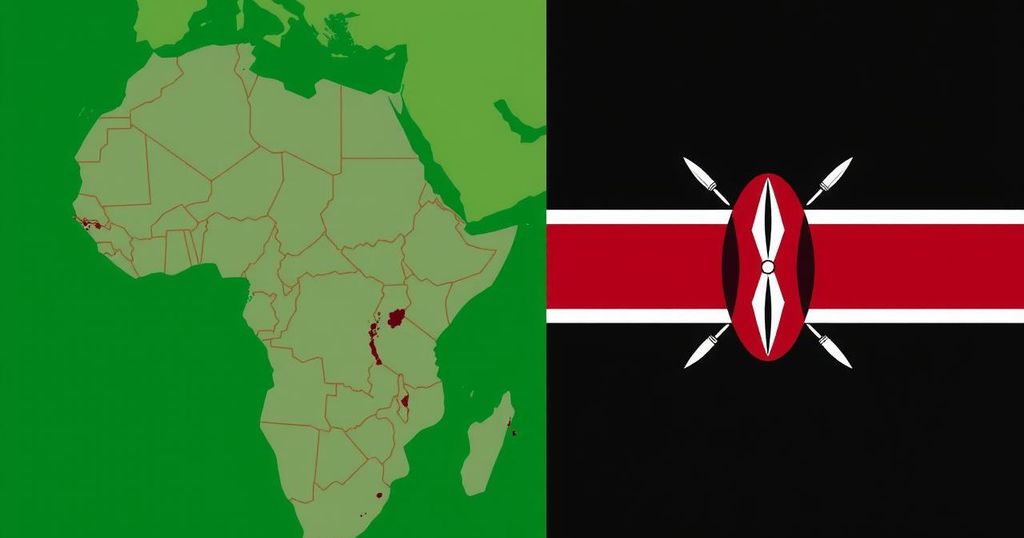IMF Reforms Bring Financial Relief to Kenya and DRC
Recently, the IMF and World Bank announced reforms that primarily benefit Kenya and the Democratic Republic of Congo by increasing borrowing thresholds and reducing surcharge fees on loans. This move aims to alleviate the financial strain on these nations, which are among the most heavily indebted in Africa. The IMF has raised the threshold for surcharges from 187.5% to 300% of borrowing quotas and increased the Poverty Reduction and Growth Trust funding to $3.8 billion per year, enhancing access to concessional lending.
Kenya and the Democratic Republic of Congo (DRC) have emerged as primary beneficiaries of recent reforms introduced by the International Monetary Fund (IMF) and World Bank, aimed at alleviating fiscal pressures faced by low-income and heavily indebted nations in Africa. The IMF has notably increased the threshold for borrowing, relieving at least seven countries from incurring surcharges on loans that exceed specified limits. Previously, nations borrowing more than 187.5 percent of their IMF quota faced additional fees; this new reform raises the threshold to 300 percent, thereby significantly decreasing the debt servicing burden for affected countries. World Bank President Ajay Banga confirmed during the annual meetings held in Marrakesh that these reforms are designed to provide critical support to vulnerable economies. As per IMF Managing Director Kristalina Georgieva, this adjustment will reduce borrowing costs for member states by approximately 36%, equating to around $1.2 billion annually. Historically, Kenya has been the only sub-Saharan African country incurring surcharges, totaling $4.6 million in three instances this year. Given that Kenya, Burundi, and South Sudan are categorized as being at high risk of debt distress, the timing of this relief is crucial, particularly as Kenya endeavors to minimize borrowing amidst rising interest rates. Additionally, the IMF is set to more than double the available funds under its Poverty Reduction and Growth Trust (PRGT) to $3.8 billion per year, a beneficial step for nations including Kenya and the DRC that heavily depend on concessional lending. By September 2023, DRC owed $2.1 billion and Kenya owed $1.6 billion to the PRGT, indicating their reliance on these funds for recovery and developmental initiatives post-pandemic. While the reforms are positively viewed, experts argue that the IMF must continue to enhance support for struggling African countries. Development economist Fadhel Kaboub indicates the pressing need for transparency and continued advocacy for reimbursement of earlier surcharges, highlighting the importance of ensuring that any financing provided is utilized for meaningful development goals.
The recent reforms by the IMF and World Bank form part of a comprehensive approach to address pressures faced by low-income and heavily indebted countries, particularly in Africa. These countries have struggled with rising debt and the economic shocks from the COVID-19 pandemic. The significant adjustments to borrowing thresholds and the increase in concessional funds through the PRGT are aimed at providing immediate financial relief and facilitating development efforts. Understanding the historical context of the surcharge policies and the struggles of nations like Kenya and DRC is essential to grasp the importance of these reforms in stabilizing their economies.
In conclusion, the reforms announced by the IMF and World Bank exemplify a critical shift towards providing much-needed financial support to countries such as Kenya and the Democratic Republic of Congo. By alleviating surcharges and increasing the funds available under the PRGT, these institutions are addressing immediate debt challenges faced by vulnerable nations. The true impact of these reforms, however, will depend on effective utilization of the funds directed towards sustainable development and economic resilience.
Original Source: www.theeastafrican.co.ke




Post Comment